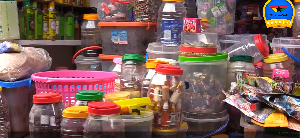Dr Tia Alfred Sugri, Deputy Minister of Food and Agriculture in charge of Livestock, has called for heavy investment in the livestock and poultry sectors to enhance the competitiveness of local production in animal produce.
He said such investment would address Ghana’s local meat production deficit, which stands at 50 per cent as well as to lower production costs and add value to Ghanaian animal products.
Dr Sugri was speaking on Thursday at the 17th Biennial Conference of the Ghana Society of Animal Production (GSAP) in Accra.
It was under the theme: “Harnessing Youth Energy for Animal Production.”
Dr Sugri pledged the support and commitment of his sector to reduce the country’s dependence on imported animals and frozen meat.
He noted that the Government had implemented programmes and activities such as the National Cockerel Project, Credit-in-Kind scheme for pig farmers, establishment of legume fodder gardens and subsidies on fertilizers to support livestock farmers.
Dr Sugri expressed worry that the country imported much of its animals and frozen meat needs, adding that the situation needed to be reversed.
He said: “Whilst the live animals are moved into Ghana by road daily from our neighbouring countries, namely Burkina Faso, Mali and Niger, live day old chicks are brought in by air whilst the frozen beef, chicken and pork come in through the habour.”
Dr Sugri expressed dissatisfaction that domestic livestock production in Ghana had been led by small scale farmers and confined mainly to the northern savannah and the coastal plains, adding that the poultry sector had a number of commercial farms in the per-urban areas.
He called on institutions of higher learning to develop strong entrepreneurial academic courses to make graduates self-employed and reliant.
Dr Kosi Awuma, President of GSAP said the Society chose to focus on the youth in agriculture because they (youth) had the physical strength, drive and mental capacity to be innovative for increased productivity.
He however expressed worry that most youths were unenthused in agricultural activities and attributed the situation to the fact that the group were misinformed that agriculture was solely crop farming.
Dr Awuma expressed the hope that the communiqué that the participants were expected to submit at the end of the conference, would help to inform government policies and programmes.
Professor Aaron Lawson, Provost of the College of Health Sciences at the University of Ghana underscored the importance of livestock and poultry production to humans and animals and called for proactive and pragmatic ways to attract youths into agriculture.
Business News of Friday, 22 July 2011
Source: GNA












